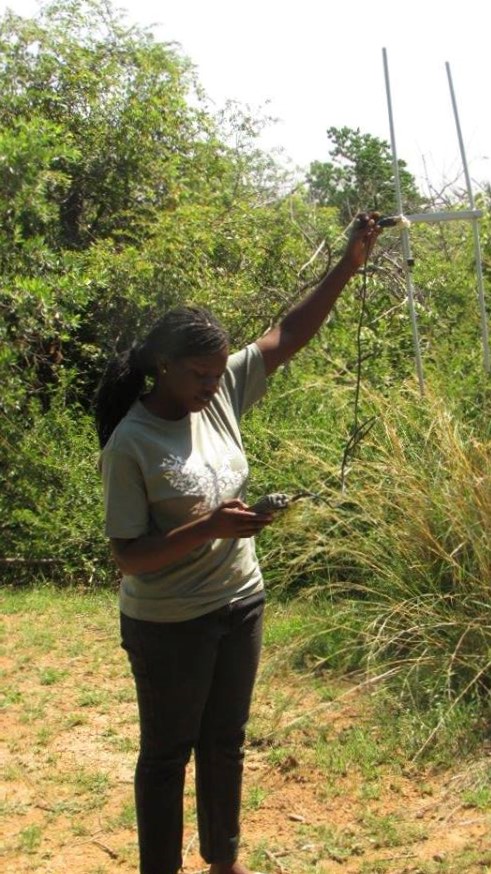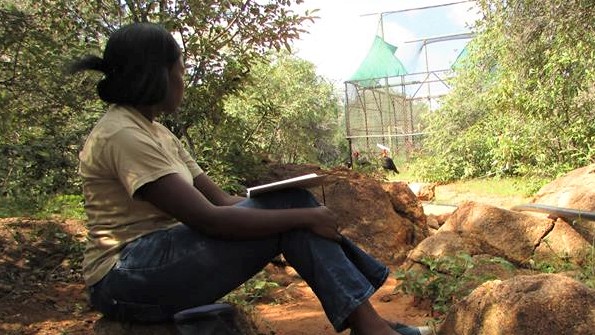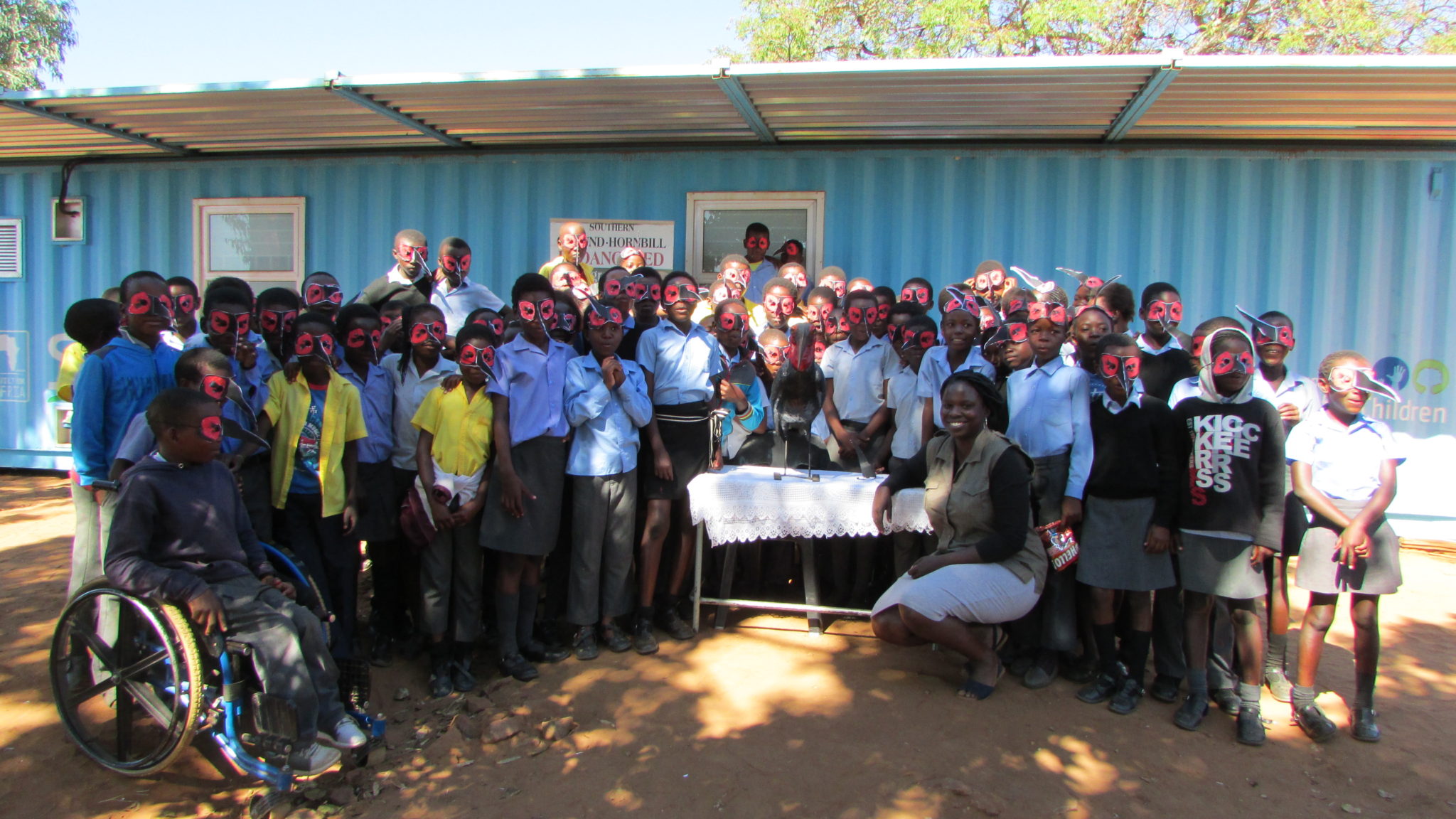This July and August, we’re running a special series of blog posts profiling AOS members around the world, in honor of the recent change to AOS’s bylaws eliminated any reference specifying the Western Hemisphere as the Society’s geographic sphere of influence. This week, meet Patience Shito, a master’s degree student in South Africa.
What’s your current affiliation and title?
I’m currently a master’s candidate and an intern with the Mabula Ground Hornbill Project, based in South Africa.
What are you working on right now?
For my internship, I do a lot of education and awareness work about the Southern Ground Hornbill. We go out to schools and we do lessons and activities with the children, teaching them about the importance of the bird and why we are concerned about it, because it’s an endangered species in South Africa. We also go out and interact with rural communities and farmers and just the general public, be it at workshops or bird fairs or just gatherings where we’ve been invited to give talks, and we give talks here on the game reserve where we’re based, the Mabula Game Reserve. The Southern Ground-Hornbill is a culturally significant species in most ethnic groups throughout its range in Africa, and we aim to maintain that reverence through all age groups, as it has contributed to the persistence of the species in some areas.

We also do research on the birds. Southern Ground Hornbills are a long-lived species, they live for about fifty years, and the research that’s been done on them hasn’t really covered all of the aspects of their biology and ecology as well as their interactions with humans here in South Africa. For my master’s thesis, I’m looking at the factors that are affecting the distribution of the birds in an area called the Limpopo River Valley, where ground hornbills are recolonizing the region after almost being wiped out in the 1960s and 1970s.
When did you join AOS, and why did you decide to join?
I applied for a Student Membership Award last year and received a year of free AOS membership. I applied because I realized that my knowledge was a bit lacking in terms of current trends in ornithology, and I just wanted to broaden my horizon in terms of what people are doing currently throughout the world. I realized that the American Ornithological Society has members throughout the world and I can possibly link up with them and find out what’s going on in matters pertaining to ornithology. In addition, I wanted to be able to apply for the Student Research Awards and possibly, hopefully, get some funding to complete my master’s studies.
What do you see as the best benefit of being an AOS member?
The best benefit is just opening up my mind to new ideas, from reading articles in the journals, and interacting with fellow ornithologists. It’s easy to be stuck in one track, one way of doing things, but if I can interact with more people, more ornithologists, to learn as much as I can, then I think I can go far in my career in ornithology.

